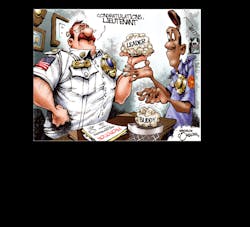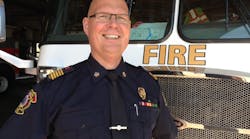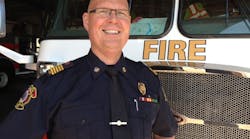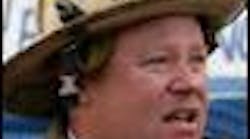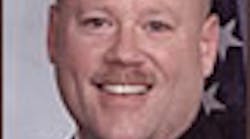One of my favorite cartoons by illustrator Paul Combs is his “Buddy to Boss” illustration. You know the one where the fire chief hands the leader brain to the newly promoted lieutenant, and the lieutenant puts his buddy brain into the wastebasket. I like this because Combs pokes fun at the transition that occurs when a firefighter gets promoted to an officer.
It’s funny, but at the same time it’s reality and this transition can be difficult for many newly appointed officers. Some newly promoted leaders can be insecure in their leadership position due to a lack of training, education, mentoring and coaching. Some may even have a fervent desire to be popular and kind in order to remain “one of the gang.” This desire can out weigh their responsibility to deal with conflict and performance issues.
Unfortunately some newly promoted (and existing) officers believe that when the bars are on the shoulder they need to demonstrate the macho image and hide their vulnerabilities and weaknesses. What they do not realize is that in doing this they rob themselves of the richness to develop to their full leadership potential.
Lets connect the dots and see how newly appointed officers could set the framework for their leadership success.
If you are going to become grounded as a leader, you must be willing to take the lead and become the authentic leader. Authentic leaders are those that have learned through experience that they must peel back the layers to discover their true strengths and weaknesses. By exploring themselves, authentic leaders become aware of their emotions, values and gain a true understanding of who and what they are. This is important because through this self-exploration, authentic leaders recognize that they need to be in touch with their passions, dreams, and aspirations. This self-discovery helps connect with others and build trusting relationships.
Great leaders make the tough calls because they know they are being watched by their followers - everyday. They let the under performers know when they are underperforming and let the performers know that their efforts make a difference to the department.
As leaders we need to confront conflict head on, and in the process we need to look at the conflict as a learning and growing opportunity for both parties. Rather than paint conflict as a negative experience we need to look at conflict as the opportunity to ask questions so both parties can grow. This requires mature leadership and comes with hard work. Good leadership is hard work - if it were easy, everybody would be doing it.
New officers must realize that leadership is really a metamorphosis where growth and development must be consciously practiced. We are all at our own stage of leadership metamorphosis and we are all responsible for our development as a leader. I am a strong advocate for providing opportunities for firefighters to grow and develop as leaders, but if we truly want to shine as leaders, we also need to take responsibility and pursue leadership growth on our own. This means that we need to ask questions, seek guidance, look for mentors, ask for coaching sessions and leave the buddy brain in the wastebasket where it belongs.
One of the greatest challenges for fire service leaders is to increase firefighter loyalty and build trusting relationships. Just as leadership requires hard work everyday, so does building trusting relationships.
Trust is the hardest thing to earn and it is the easiest thing to lose. It’s a sad fact, but many officers with the buddy brain have lost the trust of their peers and subordinates because of their inability to deal with poor performance and conflict.
It’s tough being in a leadership position in the fire service, but taking the lead requires courage and determination. The last time I checked, this is what the profession is all about and connecting the leadership dots is just another way to grow as a leader.
As always, let’s grow together.
